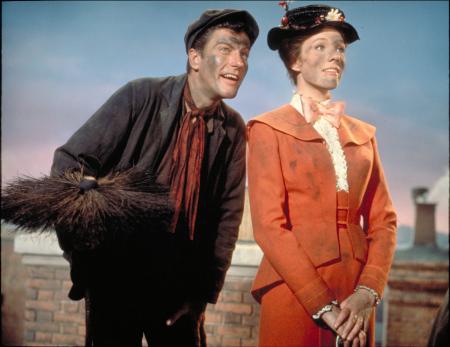I speak directly to all the "Friends" fan reading this blog. Ever imagined Chandler Bing wearing a cap and rapping about the names of the Presidents of United States? Would be the funniest Chandler has ever been, right? Then you should DEFINITELY watch "The Ron Clark Story."
First off, it is NOT a comedy movie, as you might have thought after reading the first paragraph. It has a serious, yet a very consistently sweet tone to it. Matthew Perry has made us laugh out loud in Friends and made us go 'Aww' in this film. And with excellent acting, I might add.

THE REAL LIFE RON CLARK
Based on true life experiences, it is the story of a white teacher who voluntarily chose to teach a class of rogue students in a school for minorities. To those of you who cannot picture rogue students, imagine a class where children sit on desks, chew gum during class, talk to each other and the teacher with utmost rudeness, do not even bother to face the teacher in the class, and keep throwing books off the desk onto the floor. This is what Mr. Clark had to deal with.
Why did he choose such a class when he had a multitude of options? The answer, perhaps, is because Mr Clark, a true teacher, knew that rudeness in students is a defense mechanism. Even the toughest of students assume a repulsive exterior only to hide the frustrations of their daily life. Ron Clark knew that he could find their hidden innocence and enthuse interest. He believed that his students could work wonders and surprise everyone, even themselves.
Principal Turner: I have an opening in grade 3. If your credentials check out...
Ron Clark: You have an opening right here.
Principal Turner: No. Last year this class went through six different teachers before Christmas.
Ron Clark: Yes. Nobody wants them, and I do. So what's the problem?

The main reason for Clark's success was the fact that he believed in his students. He remained constantly optimistic that his students were very much capable of securing the best grades, despite the fact that the students considered themselves to be failures. He could see the potential of his dear students. All he had to do was create an environment where their self-esteem would increase and they could realise how gifted they were.
Shameika: Everyone thinks we are losers, Mr. Clark.
Clark: No. You are not losers. These rules? They represent everything you have accomplished this year. Discovering new things, believing in each other, believing in yourselves. And I am proud of you. Compared to all that, this test? Pfth!

To do that, he had to be one of them. "We are a family" was his motto. He wanted to convey to his students that they could trust each other and him. He strived to teach his students about respect for themselvesand for others. He became more involved in the lives of his students, to try and understand them. This included meeting their parents, playing dutch swing with them, and of course, the chocolate milkshake challenge! So involved did he become that Mr. Turner even asked him to stop acting like a 12 year old!
What Mr. Clark had to deal with was something people have termed as "occupational hazard". Not only were the students rogue, they received absolutely no encouragement from their families. Why shouldn't they think that they are losers?
Shameika Wallace was a smart little girl who believed that Clark was an intruder in what she saw as her school. She lived at home with her mother, who worked two jobs. She had to take care of her little brothers, so she couldn't do her homework and couldn't be a kid. To cover her feelings about not being able to do anything, she just pretended she didn't want to work. She turned out to be the district topper.

Tayshawn was the worst of all the students Mr. Clark had to teach. He had no father, lived in a foster home, where his foster dad did not care at all about him, and even abused him violently. He had never really built up any social skills, and, as a result, he didn't have any friends. He came together with Mr. Clark and they bonded. There was something about him that let Tayshawn know he really cared, unlike his previous teachers. Tayshawn had failed two grades and was the class bully. But Mr. Clark instilled pride in him and let him know he can succeed.
Badriyah was different than all other students. She liked to read and study. But she came from a patriarchal society, which did not allow her to exploit her talents to the fullest extent. During her new teacher’s visit with her parents, she tries introducing herself to Mr. Clark, but her father shuts her up, saying, “Men are talking.” The fact that she was a nerd also had some role to play. She was constantly teased upon by the other popular stylish girls of her class, and she could not fit in.
Julio was a student who always tried to con his way into getting good grades or getting money, even though he couldn't do math or count. He was one of the troublemakers in Mr. Clark's class - the class clown in the school. But he felt a weird sense of comfort in Mr. Clark's presence. In the presence of Mr. Clark, he had the courage to kick his bad habits and say 'NO' to the bullies who influenced him.

It is said that teachers play a very crucial role in shaping the society. This movie distinguishes between people who are teachers and people who consider teaching as just a job. The latter group of people simply make the students learn the facts, so that they receive good grades. The former group, however, teach more than mere facts. They connect with students and teach them how to face life. They INSPIRE!















